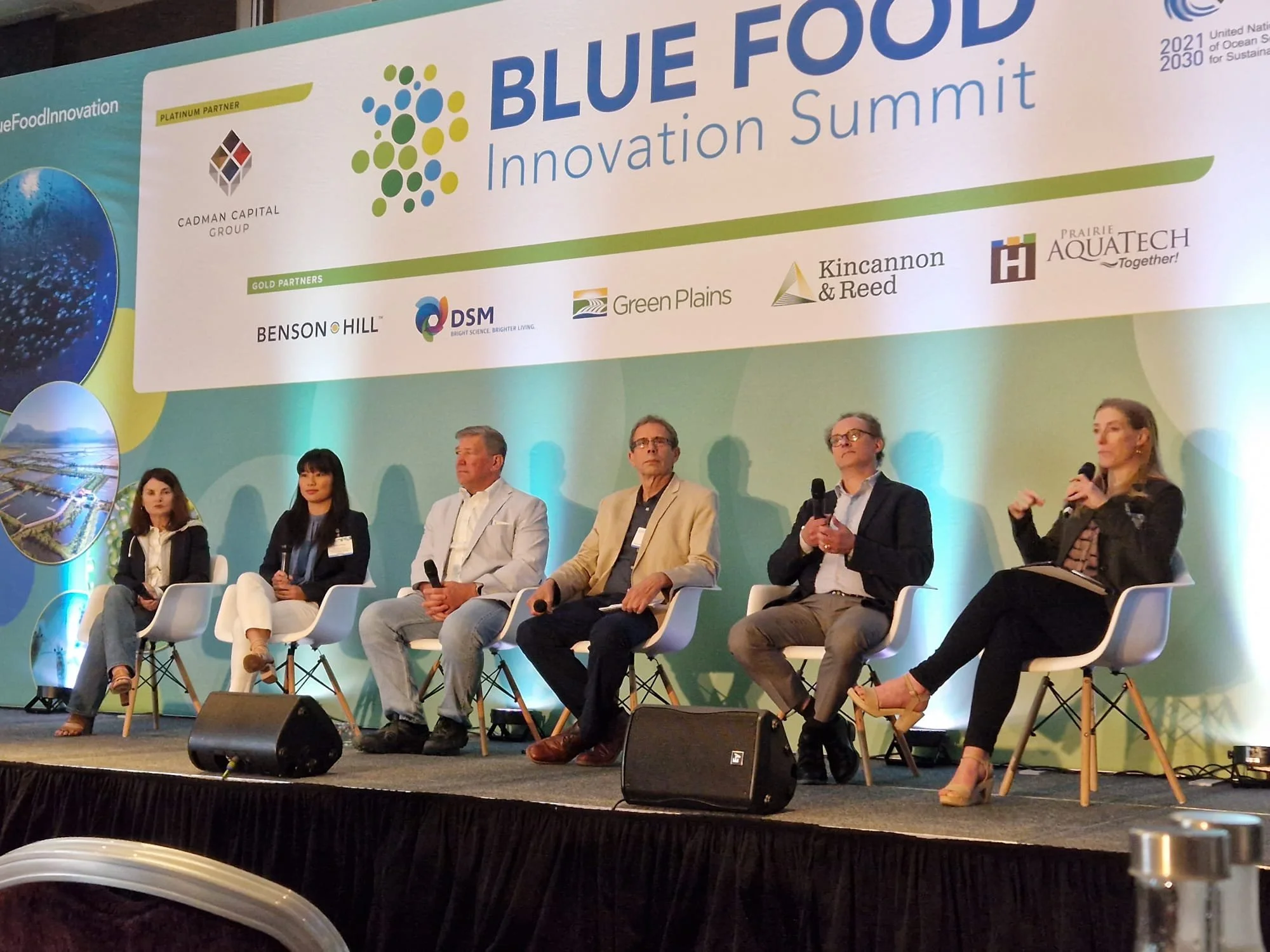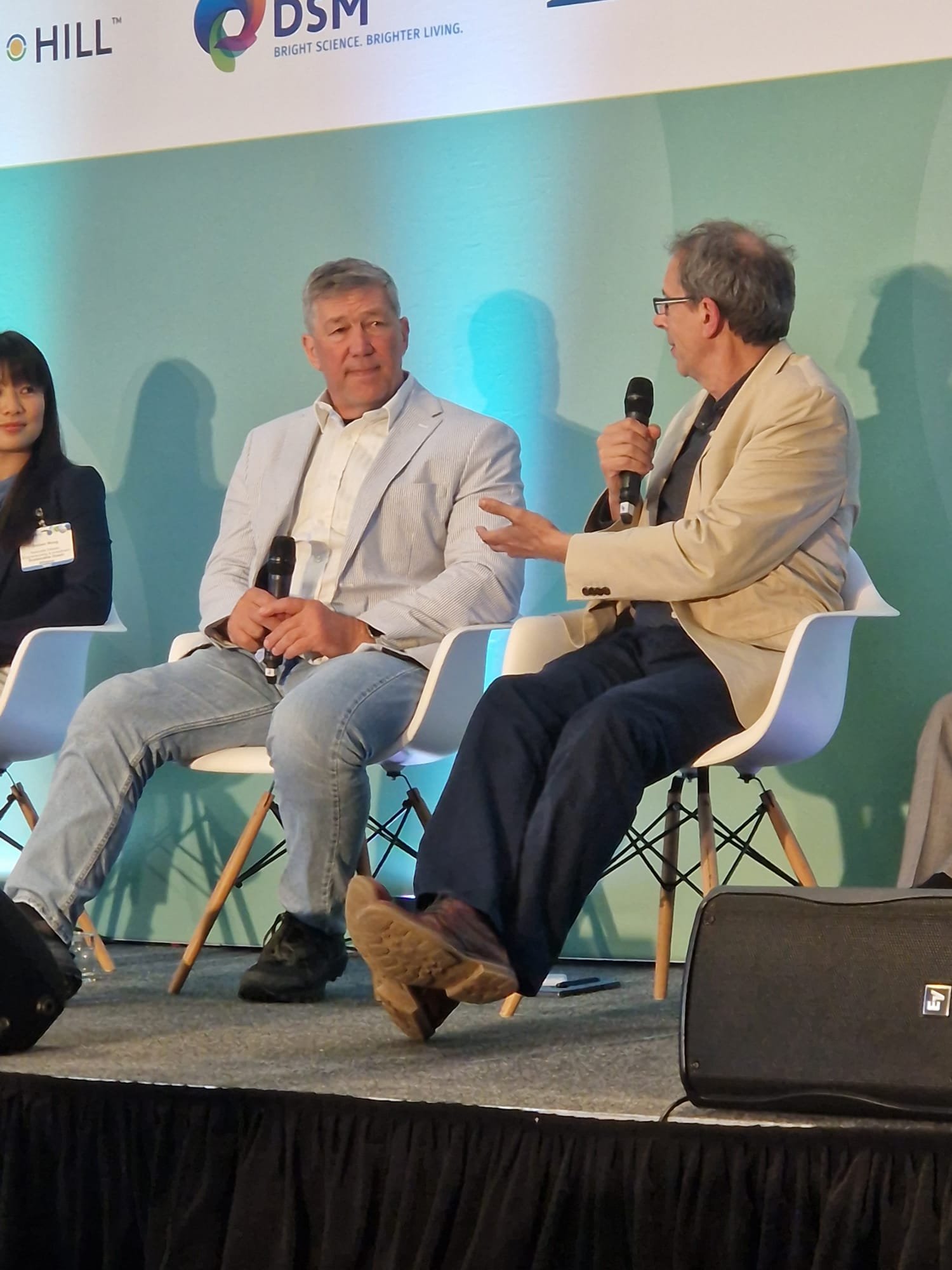Professor Dave Little attended the recent Blue Food Innovation Summit (21-22 May 2024) which was held in London and organised by Rethink Events Ltd.
“With our food system increasingly under stress from conflict and climate change, the summit aimed to put blue food, sustainable aquaculture, and restorative ocean practices at the heart of the global conversation.”
The event brought together leading companies from across the value chain together with investors and other innovators to share forward thinking approaches and showcase disruptive technologies. The aim was to explore opportunities to overcome bottlenecks to growth and promote greater partnership and collaboration to protect and restore the ocean ecosystem.
David Little in discussion with Dr Chris Ninnes (Aquaculture Stewardship Council) at the Panel on “Waves of Change”
David Little was a panel member for the session “Waves of Change: Unifying the Blue Sector through Education, Collaboration and Investment”. This session took a global view and considered the interaction of industry, consumers, policymakers, and investors and the role of the blue food industry in the broader agendas of climate change and sustainable food systems. A key issue that was raised was the twin educational challenges for the sector going forward: how to ensure blue food professionals entering the sector had a broad base of skills and also how specialists entering the sector with finance, management and broader tech, AI and engineering backgrounds for example could quickly access and update their knowledge on the complexities of blue food systems. The first prompts continual revision of the Institute of Aquaculture teaching provision at MSc and Diploma levels as the range of employment destinations for our graduates continues to broaden. The sheer number of alumni in the Summit audience was a testament to how they find positions across the sector, increasingly in roles that are not primarily based on the biological sciences that most aquaculture training provision still focuses on. Interdisciplinary approaches that blend a natural, social and technical science education are urgently required. The second need requires a rather different approach with accessible continuing education programmes being a central element but a need for self-learning products enhanced with access to mentorship.
David Little also participated in a roundtable discussion on the future of sustainable and ethical aquaculture and the session “Aquatic Welfare & Harvest: Strengthening Standards and Driving Welfare-Focused Technologies” - More information in this welfare news blog article.

